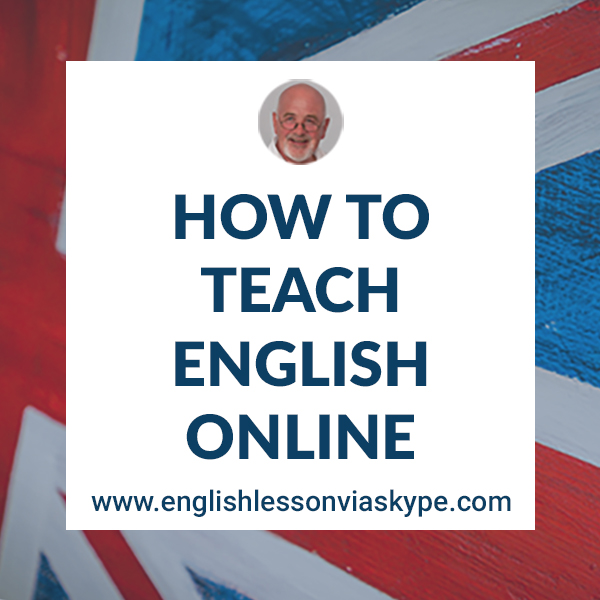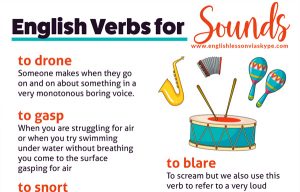Learn 20 key English adverb collocations. This lesson is a great tool for anyone serious about taking their English to the next level.
If you’re ready to sound more like a native speaker, understanding how to use these key phrases is crucial. This lesson is especially useful for ESL students preparing for exams like the IELTS, TOEFL, or CAE, or simply wanting to polish their everyday English.
Listen to the podcast Speak Better English with Harry or watch it on YouTube at Learn English with Harry. englishclass101
natural English collocations
Key English Adverb Collocations
Harry
So in this particular lesson, it’s an advanced English lesson and we’re looking at adverbs. And in particular, we’re looking at adverb collocations. So I’ve got 20 in total for you.
What we want to do here is to enhance your English language skills. We hope these collocations will do the trick.
Let me show you a quick example. Let’s look at the word ‘concerned.’ Typically, we say ‘I am concerned.’ However, if you want to add more depth to your concern, especially about something like your child’s health or their progress at school, you can use an adverb to emphasise it.
For example,
I am deeply concerned.
So it gives you the ability there to put more meaning into it. You can, ofc course use:
✅ very concerned
✅ really concerned
But we wouldn’t say
❌ sorely concerned
That would not make sense.
improve english on a budget
Online English Courses from €7.99
firmly believe
❌ severely believe
❌ strictly believe
When to use: when you’re very sure or confident about something
I firmly believe that I am correct.
I firmly believe this is the right thing to do.
I firmly believe you’re at fault for the mistake in this situation.
happily married
❌ cheerfully married
❌ joyfully married
After 20 years together, they’re still happily married and enjoying life.
Sarah and John are happily married, always supporting and encouraging each other.
Despite facing challenges, they remain happily married and committed to one another.
strongly criticise
❌ severely criticise
❌ toughly criticise
When to use: use it to express a high level of disapproval or dissatisfaction towards someone or something
He strongly criticised the members of parliament.
Unions strongly criticised Rishi Sunak’s actions in relation to welfare reforms.
Many customers strongly criticised the new restaurant’s service for being slow.
badly hurt
❌ very hurt
❌ heavily hurt
When to use: use it to describe someone who is seriously injured in an accident or incident
He was badly hurt in the accident and had to go to the hospital.
She was badly hurt when she fell off her bike.
The athlete was badly hurt during the game and had to be carried off the field.
Key English Adverb Collocations

sleep soundly
❌ sleep happily
❌ sleep loudly
When to use: when you want to describe deep, undisturbed sleep
You should sleep soundly because Santa Claus will be coming on Christmas Eve.
I had a great sleep last night. I slept soundly for the first time in many weeks.
completely destroy
❌ moderately destroy
❌ slightly destroy
When to use: when you want to give a much better feeling for the level of destruction
The fire completely destroyed the cabin in the woods.
The floodwaters completely destroyed the bridge, cutting off access to the nearby village.
The tornado completely destroyed the small town, leaving only debris behind.
totally agree
❌ utterly agree
❌ wholly agree
When to use: you want to express complete or wholehearted agreement with someone’s statement, opinion, or proposal
I totally agree with the last person’s comments; that sums it up perfectly.
I totally agree with the idea of providing the customer with a refund.
hopelessly devoted
❌ very devoted
❌ slightly devoted
Meaning: being deeply and completely committed to someone or something
She is hopelessly devoted to her dog, caring for him no matter what.
He’s hopelessly devoted to his childhood team, loyal through all their losses.
completely forget
❌ absolutely forget
❌ utterly forget
On the way home from work, I completely forgot to pick up milk at the supermarket.
I completely forgot our wedding anniversary this year.
I’ve been so so busy, I just completely forgot all about it. I’m really sorry.
I completely forgot about our meeting this afternoon.
He completely forgot to turn off the oven before we left the house.
She completely forgot to bring the tickets to the concert, and we had to go back home to pick them up.
book your trial English Lesson
care passionately
✅ passionately care
❌ care devotedly
❌ care enthusiastically
When to use: you want to express strong, deep feelings of commitment or enthusiasm for someone or something
He cares passionately about his football team, supporting them at every game.
He cares passionately about his country’s future and actively participates in community efforts.
She cares passionately about her children’s education.
badly/shabbily dressed
❌ wrongly dressed
❌ roughly dressed
When to use: to describe someone wearing clothes that are worn out, untidy, or not put together well
I think the economy in this country isn’t doing so well. The people were badly dressed.
He showed up to the interview shabbily dressed, with a torn jacket and faded jeans.
He was badly dressed for the cold weather, wearing only a thin sweater and frayed jeans.
need desperately
✅ desperately need
❌ intensely need
❌ passionately need
When to use: when there’s an urgent and intense requirement for something
I desperately need a coffee; I’ve been waiting to have one all morning.
After the flood, the small village desperately needed help to rebuild their homes and restore essential services.
The startup desperately needed an investor to inject capital and keep the business afloat.
break deliberately
✅ deliberately break
❌ purposely break
❌ consciously break
When to use: when someone intentionally causes something to break or not function
The child deliberately broke the mug during a tantrum, throwing it against the floor.
The company deliberately broke the contract, accepting a better offer from another client.
He deliberately broke her trust by revealing secrets she had confided in him.
apologise profusely
✅ profusely apologise
❌ excessively apologise
❌ abundantly apologise
When to use: when expressing a sincere and intense apology, often for a significant mistake or oversight
He apologised profusely for forgetting her birthday, his words filled with sincere regret.
He arrived late to the board meeting and apologised profusely to his colleagues for the delay.
After realising her error in the report, she apologised profusely to her manager.
Key English Adverb Collocations

bitterly disappointed
❌ harshly disappointed
❌ intensely disappointed
When to use: when expressing a deep and painful sense of disappointment
You should have seen his face. He was bitterly disappointed that he didn’t make the team.
He was bitterly disappointed that he didn’t receive the bonus he was expecting.
severely affected
❌ extremely affected
❌ drastically affected
When to use: when describing a situation where something has been greatly impacted or altered in a negative way
The transport system was severely affected by the bad weather, causing numerous delays and cancellations.
Her health was severely affected by the pollution in her neighbourhood, leading to chronic respiratory problems.
The local economy was severely affected by the factory shutdown, resulting in significant job losses and an economic downturn.
distinctly remember
✅ remember distinctly
❌ sharply remember
❌ brightly remember
When to use: you want to emphasise that a memory is very clear and specific
I remember distinctly telling you that I won’t be home tonight for dinner.
I distinctly remember sending an email to cancel the meeting on Friday.
I distinctly remember ordering a takeaway, but it never arrived.
fatally injured
❌ terminally injured
❌ lethally injured
When to use: injuries that are severe enough to lead to death (in the context of accidents or violence)
The horse was fatally injured during the race, collapsing on the track with no chance of recovery.
Several passengers were fatally injured in the train accident and died from their injuries soon after.
The worker was fatally injured when a wall unexpectedly collapsed at the construction site.
perfectly clear
❌ precisely clear
❌ flawlessly clear
When to use: something has been explained or stated with absolute clarity, leaving no room for confusion or misunderstanding
I made it perfectly clear to you that I did not want to take part in this protest.
I thought I made it perfectly clear to the class that homework should be completed by Tuesday.
virtually impossible
❌ literally impossible
❌ totally impossible
When to use: to describe a situation or task that is so difficult or unlikely to occur that it is almost not possible at all
Climbing Mount Everest for many people will be virtually impossible.
Being able to go off and play golf on Christmas Day will be virtually impossible.
Finding a parking space in the city centre during the festival will be virtually impossible.
Those are the 20 key English adverb collocations. It’s advanced English, but they’re not so difficult. So what I’d like you to do and what you should try to do is to practice some of them. Pick a sentence. See how you can put them in. See how it sounds. Work your way around it. And if you have any problems, come back to me at englishlessonviaskype.com
This is Harry saying goodbye. Thanks for watching, thanks for listening. Join me again soon.
speak better English with Harry podcast- episode 483
more information
For more information on English grammar rules, English collocations and English idioms, check out the links below:
10 English Collocations with Family
You can always study English advanced level at Learning English with the BBC and British Council Learn English.





